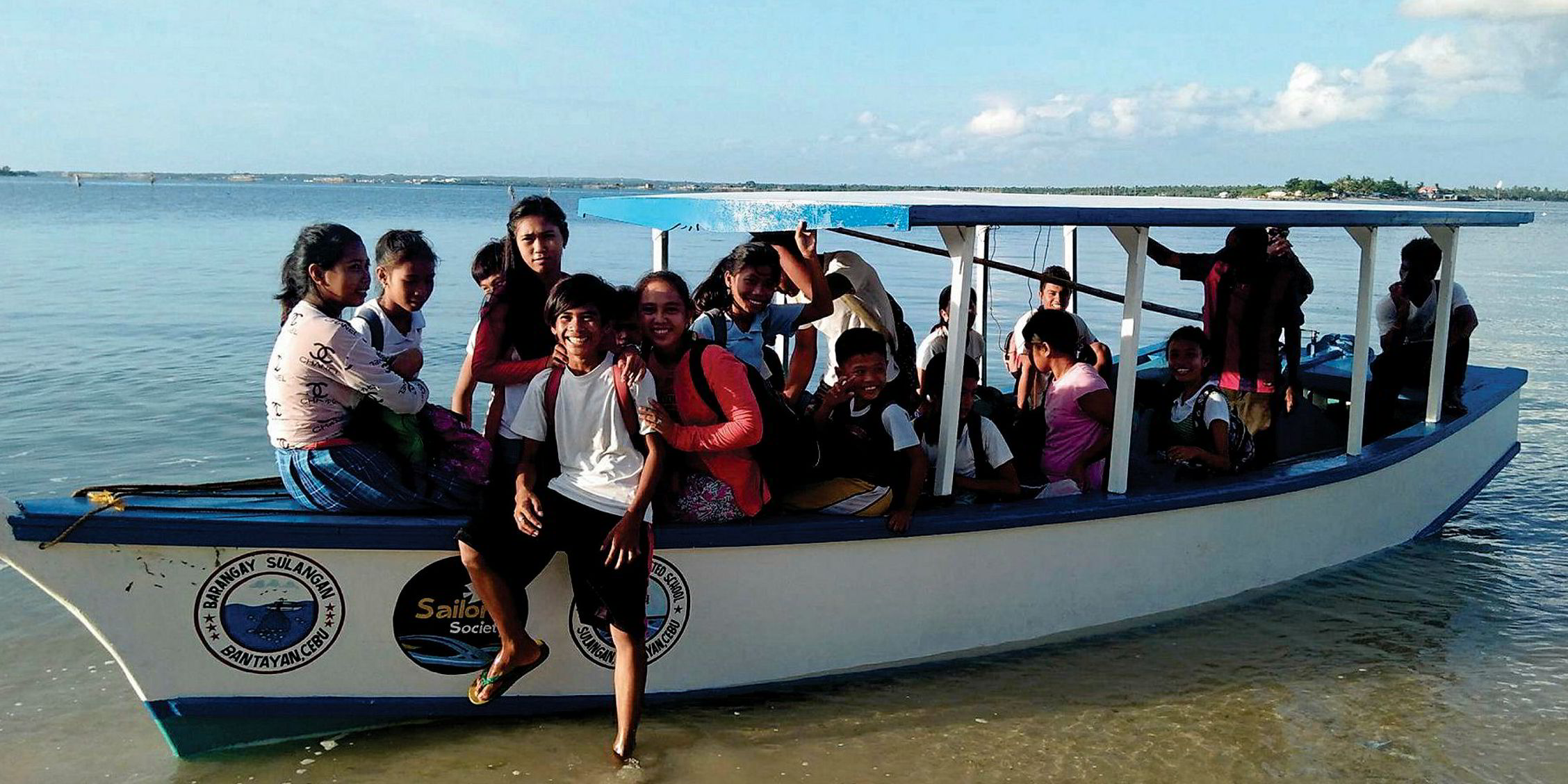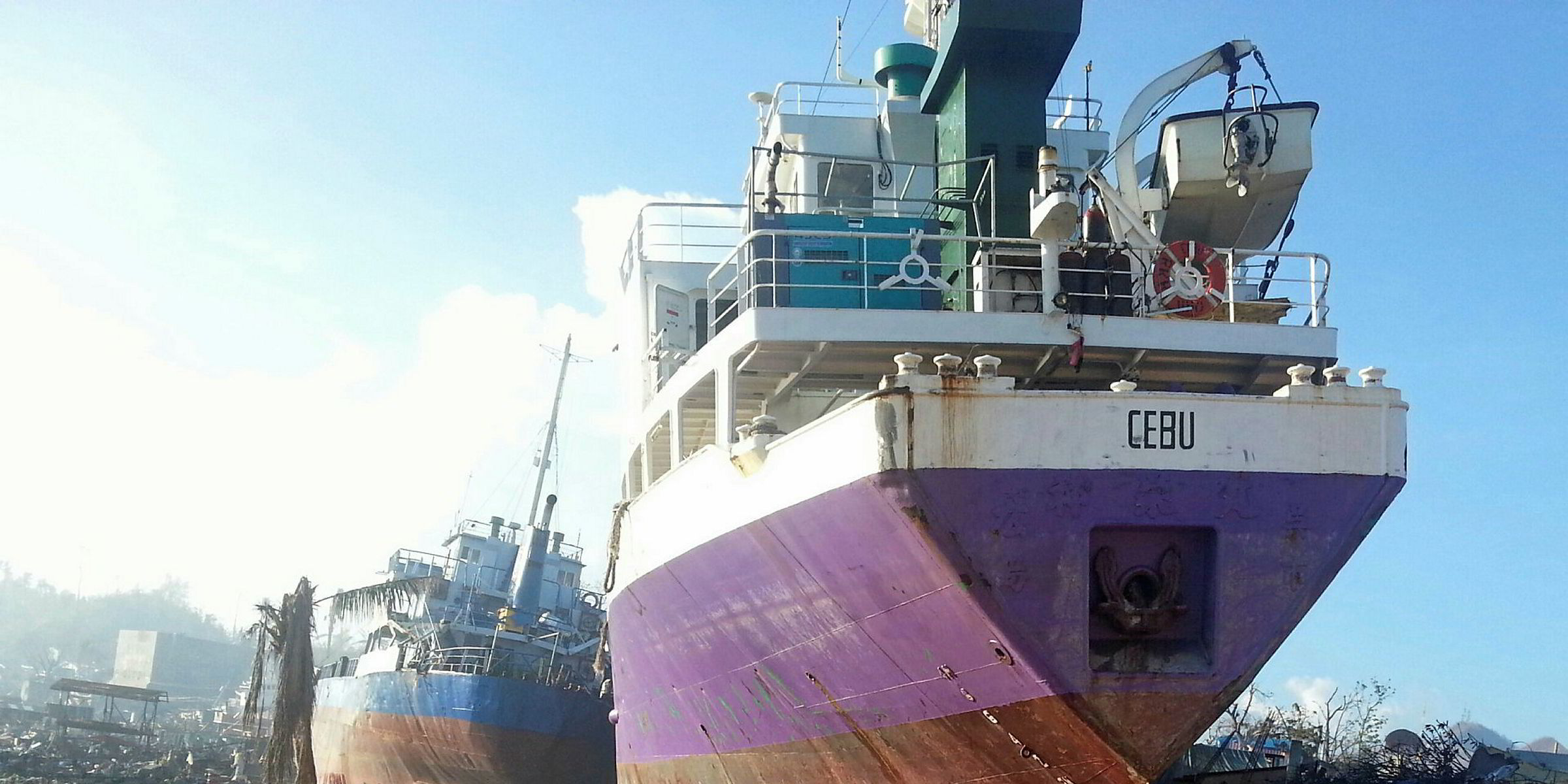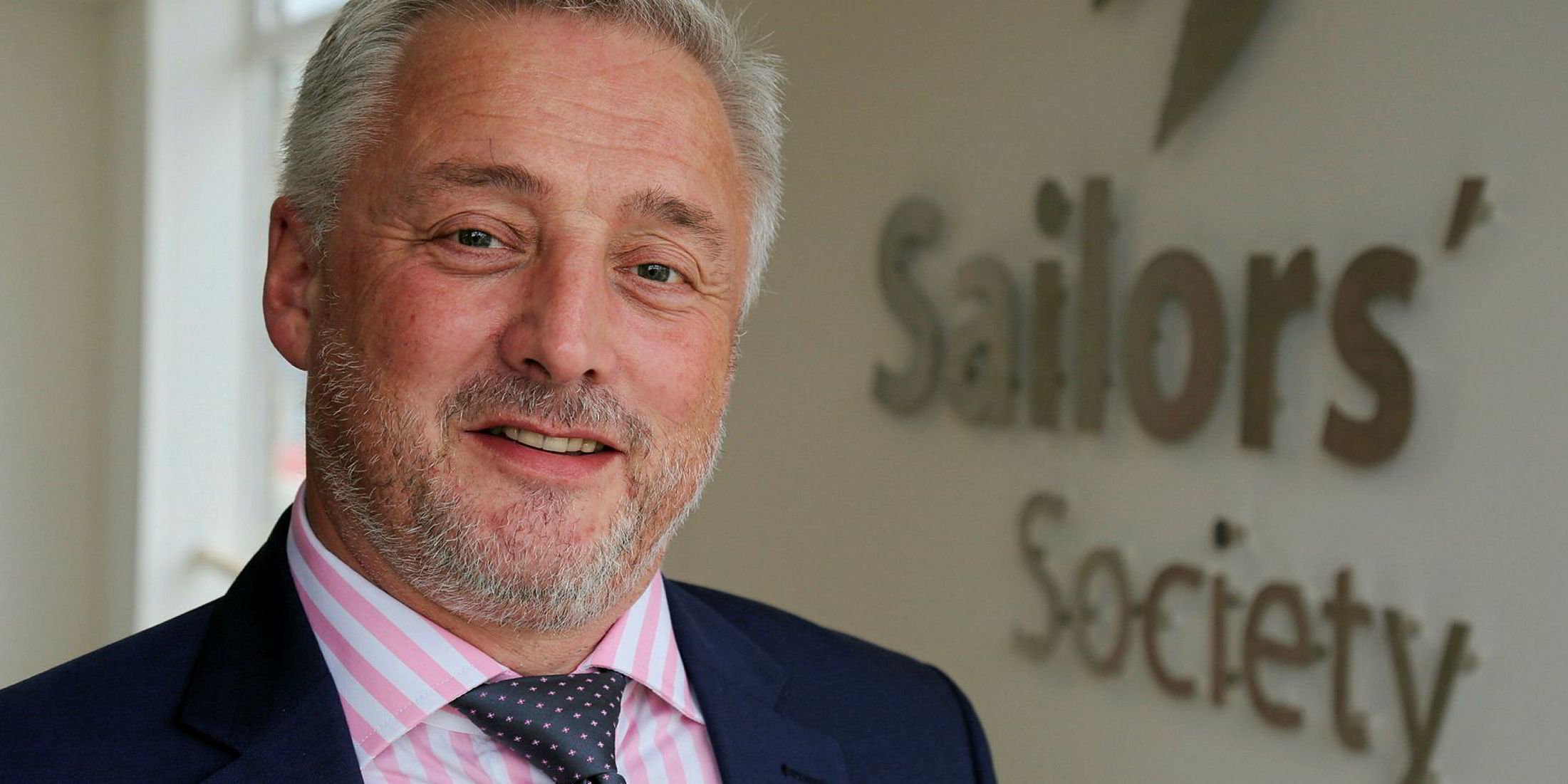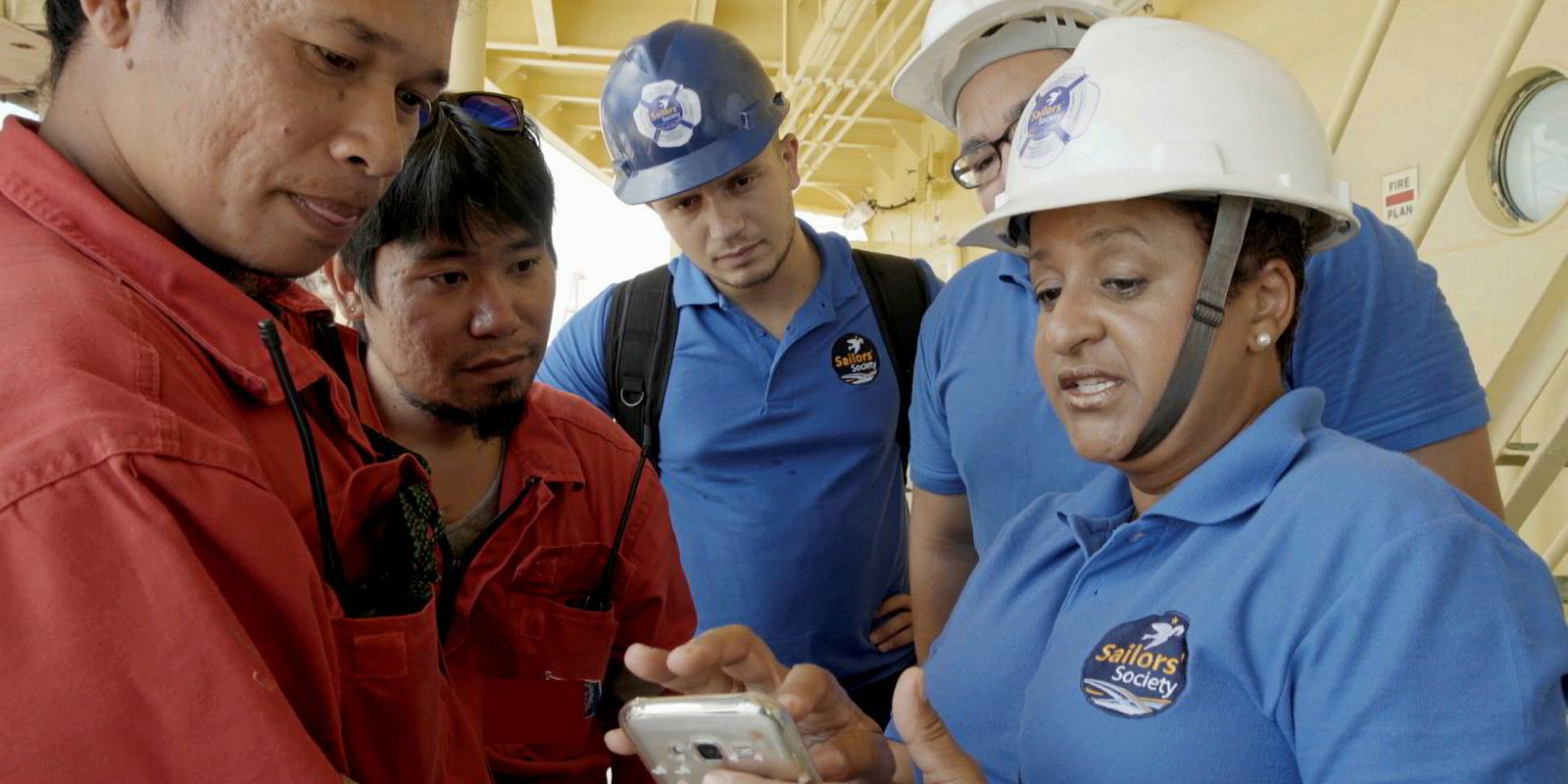Stuart Rivers spent 20 years living in Sweden working for Ericsson where he was tasked with downsizing the telecoms giant and cutting 50,000 jobs.
Today, his LinkedIn profile describes him as chief executive of a 200-year-old “start-up” finding innovative solutions for social welfare and the relief of poverty through technology.
That “start-up” is the Southampton-based Sailors’ Society whose roots can be traced back to helping destitute seafarers in London as they returned at the end of the Napoleonic wars.
Rivers, 55, is five years into his stewardship of the charitable organisation that, in its own words, seeks to transform the “lives of seafarers and their families at home, in port and at sea through the delivery of chaplaincy, education and the relief of poverty and distress”.
Punching above its weight
The Christian-based society celebrated its double century earlier this year, during which time it has seen many changes, including the use of technology to improve the efficiency and the global spread of the organisation.
“I think we are punching well above our weight in what we are achieving," says Rivers, referring to the society's relatively modest £2.5m ($3.3m) annual budget.
Technology, and the way the organisation is now structured, means “we are able to achieve a huge amount”, he says.
The society has a presence in 30 countries but embraces many others when it is called upon to tackle crisis situations.
“In the last five years, we have gone from 33 chaplains to 118, so a manyfold increase in our reach,” Rivers says.

"We are also investing in skills, so the ability of our people around the world is far better than it was.”
Training in trauma response and counselling, for example, means the society no longer has to “signpost” to other organisations and instead deals directly with many more situations than previously.
Rivers says about half the 118 chaplains are volunteers. Attached to each chaplain is a team of other volunteers visiting ships, driving minibuses and manning the society’s centres.
“I would estimate we probably have a network of between 250 and 300 people we can mobilise to support seafarers,” Rivers says.
The society’s work goes far beyond providing emotional and advisory assistance for seafarers.
Typhoon aftermath
In the Philippines, a major supplier of manpower to the world fleet, it responded to the devastation wrought by Typhoon Haiyan by building numerous new homes, school classrooms and medical centres.
“But we haven’t done that without the support of the industry and the very generous gifts from companies, which have enabled us to provide for seafarers’ families and their children,” says Rivers.
Asked to reflect on significant past milestone events, Rivers talks about the capsize of the Herald of Free Enterprise off Zeebrugge on 6 March 1987, with the loss of 193 passengers and crew.
In the 31 years since the disaster, the society has continued to bring survivors and bereaved families together.
Its chaplains helped support families in the aftermath and many of those relationships continue today.
In World War II the society played a key role serving the needs of not just merchant seafarers but also of the Royal Navy and its amphibious troops, the Royal Marines.
“Even to the point of one of our chaplains voluntarily going into an internment camp to support the Royal Navy seafarers and died there from disease,” Rivers says. "He did it because that is what he was called to do.”
Eaten by cannibals
Many of these events — including a chaplain being eaten by cannibals — are recounted in a book published to mark the society’s 200th anniversary.
“It is these stories which really describe the type of organisation we are,” Rivers says. "When I visit people on the front line, wherever it is in the world, I see such passion in what they do.”
Many of the issues today are the same as back in 1818 when sailor-turned-preacher George Charles "Bosun" Smith called a public meeting at the City of London Tavern, in Bishopsgate, in response to sailors roaming the streets of East London. The British Navy had lost more than 90,000 mariners during the Napoleonic Wars, and others were left destitute.
But what are the long-enduring issues seafarers still face?
“Separation from family, loneliness, isolation, but less so, conditions at sea in terms of accommodation,” says Rivers. “Just as real are the issues of bad weather, abandonment and piracy.”
But while factors such as ship design have improved living conditions onboard, shipowners’ drive for efficiency, leading to shorter turnaround times, has had an obvious impact.
Less shore leave means crew do not have the chance to “get away from the working environment and that has a negative effect on their well-being and social cohesion within the crew”, says Rivers.
Depression an issue
The society has been working with Yale University over the past two or three years, including on recent research that found more than a quarter of seafarers showed signs of depression. Nearly half of those reporting such symptoms said they had never asked for help.
“There is a time-bomb situation here,” Rivers says. "That condition is not sustainable in the long term, is not good for business and definitely isn’t good for the seafarers themselves. Good well-being is good for business and something to invest in.”
The society’s Wellness at Sea Week in Hong Kong on 4 to 10 November will discuss how crew well-being can contribute to the bottom line. Numerous companies are said to have adopted its training programme and two state universities in China are showing an interest.

“We are still a long way from establishing a formal presence in China but what we are able to do is, through a partner organisation there, offer Wellness at Sea training to Chinese crews,” says Rivers, who received encouraging remarks during China Maritime Week on the work the society is doing.
“We are almost at a tipping point where wellness becomes a standing agenda item,” he says.
'Perfect storm'
The problem is that a “perfect storm” exists in terms of mental health in shipping.
“Crew are away for extended lengths of time from families and friends, in small social groups and are sometimes working in challenging conditions due to the weather, abandonment, arrest or piracy.”
Even if crew have never experienced piracy, there is a fear that can prove debilitating. Abandonment is as prevalent as five years ago, Rivers believes.
"From the cases we are involved in, we are just as busy,” says the CEO, who is not convinced that the state of the freight market is a major factor.
"There are some shipowners who just get things wrong in business. Depending on whether the markets are up or down, the wind may get behind them at some point but at other times they are not very good at what they do.”
He cites one example of an owner who abandoned several vessels but was still able to fly around the world in a private jet.
However, Rivers expects rogue owners to be squeezed out over time due to charterers and other freight providers raising the ethical supply-chain bar.






